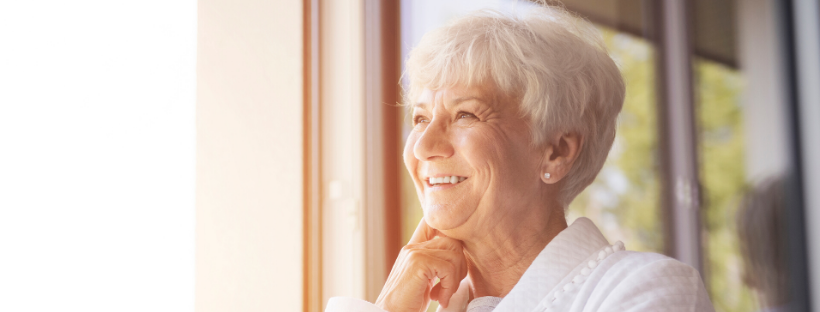It’s so good to see our communities coming back to life as restrictions ease. Maybe you’ve been enjoying getting out and about again…or maybe you’re wondering what’s safe now and what’s not.
As an older person, you continue to be at higher risk of serious illness from COVID-19. That means you need to continue being vigilant to keep yourself safe. Try to save your outings for the things that bring you pleasure and which avoid large crowds, like a walk in the park with a friend rather than a trip around the supermarket.
How Older People Can Ease Back Into Life While Staying Safe from COVID-19
Life changed quite abruptly in March 2020 as the coronavirus pandemic began to spread through the country at an alarming rate. Following public health advice, we all changed our lifestyles, distancing ourselves from one another to slow the spread of the virus.
And it worked. Australia has done remarkably well in suppressing COVID-19. As a result, restrictions are easing, businesses are reopening, friends and family can visit again, and we’re allowed to roam a bit further from home.
As life starts to look normal again, it’s easy to forget the threat of COVID-19. But, the virus is still out there. We don’t need to live in lockdown anymore and can start enjoying many aspects of life again. But we all have to remain vigilant.
That’s particularly true if you’re in a high-risk group.
COVID-19 and Older People
While you may be fit, active and engaged in your community, it’s an unavoidable fact that your age puts you at higher risk of becoming seriously ill from the coronavirus.
The Australian government warns that you are at higher risk of becoming seriously ill with COVID-19 if you are:
- Aged 70 years or over
- Aged 65 years or over and have a chronic medical condition
- An Aboriginal and Torres Strait Islander person aged 50 years and over who has a chronic medical condition
- Immune suppressed.
Age weakens your immune system, changes your cells and stiffens your lungs. This may explain why older people experience COVID-19 more severely. As you get older, you’re also much more likely to be living with other medical conditions like high blood pressure or cholesterol, chronic obstructive pulmonary disease and diabetes.
As we don’t have a cure or vaccine for COVID-19 yet, you need to continue protecting yourself as restrictions ease.
How To Continue Protecting Yourself from COVID-19
There are some things that everyone should be doing, no matter what their age. These recommendations feel quite familiar to us now but it’s so easy to forget to keep on doing them!
So, here’s a reminder to:
- Practise good hygiene
– Wash your hands frequently with soap and water or an alcohol-based sanitiser (keep one in your bag for trips out
– Avoid touching your face
– Use your elbow or a tissue to cover your cough or sneeze
– Put used tissues in the bin immediately (then washing your hands)
– Regularly disinfect door handles, benchtops, phones, taps and other frequently touched areas. - Stay home if you’re at all unwell
– Call your GP if you have any cold or flu-like symptoms and they’ll tell you whether you should be tested for COVID-19. - Keep at least 1.5m away and avoid physical contact with people you don’t live with.
- Download the COVIDSafe app to your smartphone (if you have one) for the times you do need to go out.- This helps the government to trace anyone who has been in contact with an infected person.
- Obey the rules on public gatherings (these are changing regularly so check the public health advice for your state or territory).
As an older person, the government recommends that you:
- Continue to stay home as much as possible and limit your contact with others
- Avoid non-essential travel
- Minimise shopping trips (where you will encounter many other people) by:
– Getting your medicines delivered from the pharmacy
– Getting your groceries delivered. - Continue to see your doctor for your ongoing health care but preferably by telehealth where you either talk on the phone or through videoconferencing rather than going to the clinic.
Additional Support for Seniors
You may be able to make dealing with COVID-19 restrictions easier by:
- Calling My Aged Care on 1800 200 422 to learn about services in your area
- Registering for Meals on Wheels
- Registering for priority delivery of your groceries from Coles or Woolworths (you may need your My Aged Care ID number for this – if you don’t have one, call My Aged Care on 1800 200 422)
- Contacting the Older Persons COVID-19 Support Line if you need help (for example with downloading the COVIDSafe app), have concerns or questions, or are feeling down.
Tips for Easing Back Into Life
It’s important to find a balance between protecting yourself from COVID-19 and enjoying life, which protects your mental health.
So, even though the government is still basically telling you to stay at home, you may still want or need to go out from time to time.
Think about prioritising enjoyable outings, rather than errands. For example, if you can get your groceries and medicines delivered then you don’t need to go to busy supermarkets or pharmacies.
You can use that time to do something more satisfying and lower risk, such as going to the park with your family or joining a friend for dinner.
How Can Focused Healthcare Help?
If you need more support at home in the light of COVID-19, then Focused Health Care can help. We provide many in-home services for older people to support your health, wellbeing and independence.
Our clients often benefit from the company as much as the care. We match our clients and carers carefully so that you’re likely to enjoy seeing one another. Please give us a call on 1300 201 351 if you’d like to learn more.






